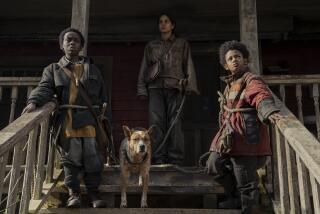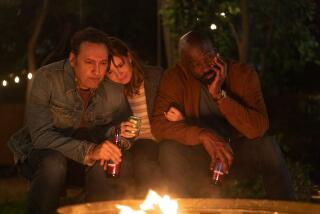‘The Changeling’ review: A grim fairy tale about parenthood and New York City
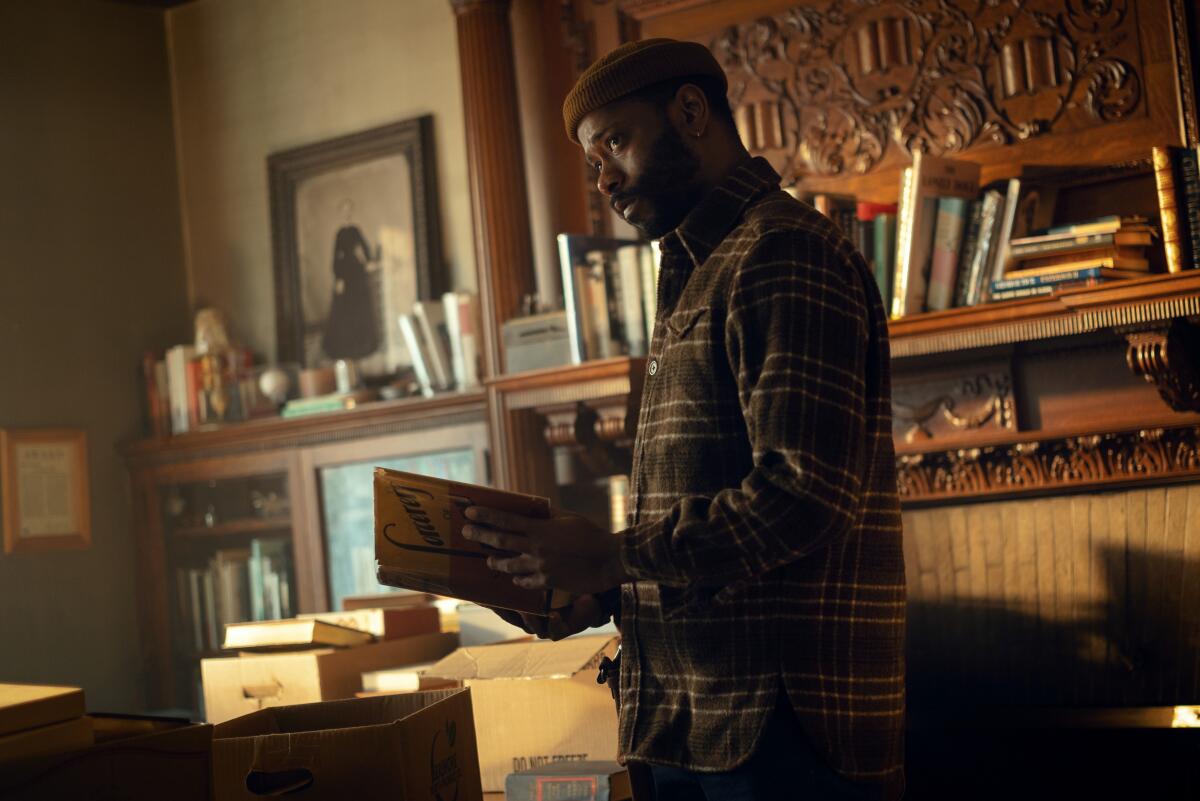
If you know what a changeling is — a substitute child swapped for a real one by fairies or trolls in Northern European folktales — you are already two-thirds of the way to the meat of “The Changeling,” Apple TV+’s adaptation of the 2017 novel by Victor LaValle. (Once you understand that the title is not metaphorical, you are most of the rest of the way.)
Mostly fascinating, sometimes frustrating, and thick with the tension that occurs whenever a baby is involved in supernatural suspense, the series, which begins Friday, plays with so many ideas that it’s hard to decide exactly what it’s about, in the larger sense. It has something to do with parenting, with marriage and with monsters in the age of smartphones; it has a lot to do with New York City, and a little to do with race — its married protagonists are Black, with white fathers — but not in such a consistent way that it could be called a theme.
Then again, stories ideally proceed from character, and circumstances, and whatever rules, natural or supernatural, the writer has built a world around, and it’s possibly more useful to regard “The Changeling” as a drama of particular individuals rather than worry about what any of it “means.”
The series wastes no time in staking out its otherworldly territory, mapped out over (and under) familiar urban topography: “This fairy tale begins in a library in Queens,” says our narrator, who is LaValle himself. Here Apollo Kagwa (LaKeith Stanfield), a secondhand bookseller, meets Emma Valentine (Clark Backo), a librarian, and begins a long-term, eventually successful campaign to get her to go out with him. (“Some may call that stalking,” says narrator LaValle. “Apollo called it persistence.”)
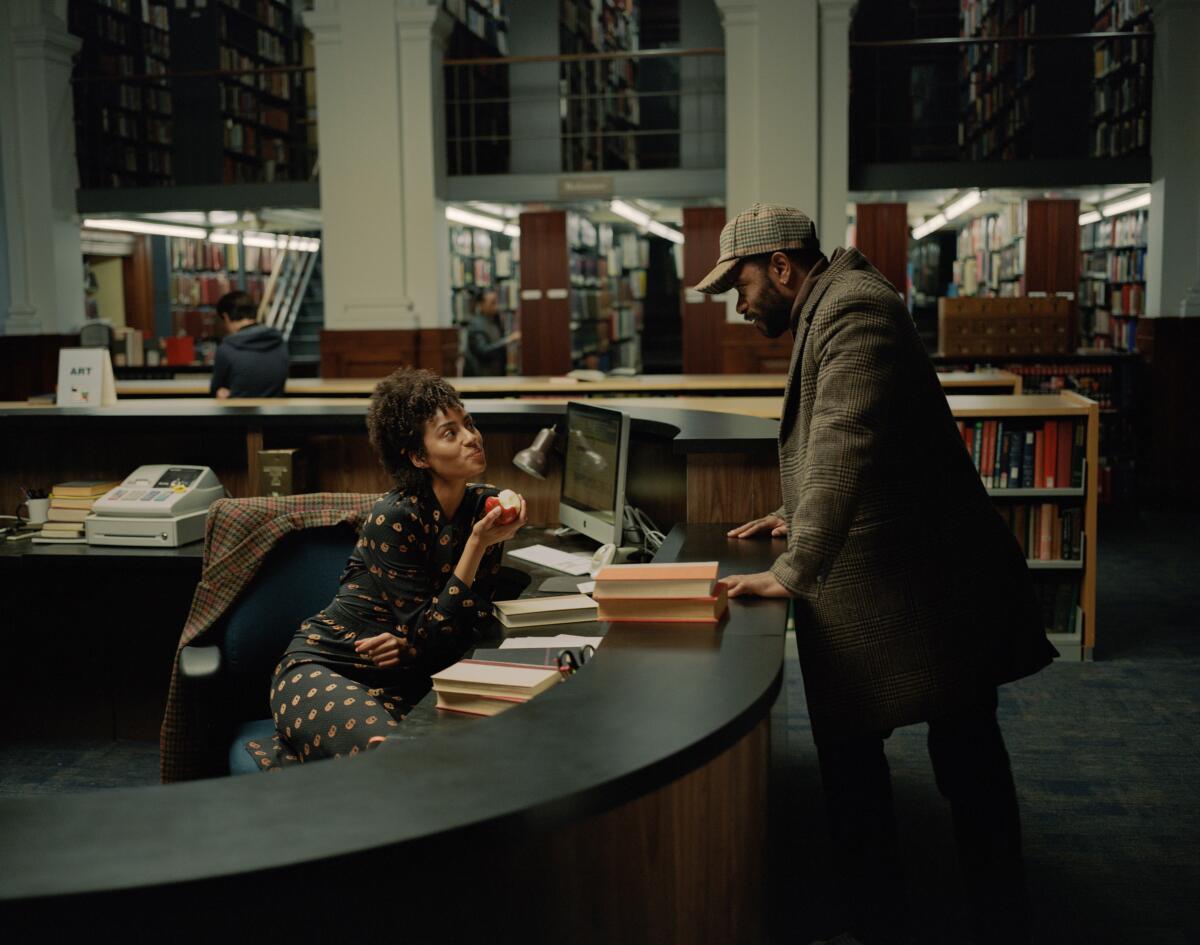
Their courtship is interrupted by Emma’s journey to Brazil, where, on the shores of a lagoon to which she has been advised not to go, she meets a witchy woman who ties a cord around her wrist and instructs her to make three wishes, which will come true when the cord comes off. (She also tells her not to cut it, warning, literally, in subtitled Portuguese, “Be careful what you wish for.”)
Bowing to the dictates of the genre, Apollo will, on her return, do just that, announcing, “I am the god Apollo,” as he sometimes does, and that he will make Emma’s dreams come true. Anyone who has ever seen a horror film or read a fairy tale will recognize this as a mistake. (And an instance of male presumptuousness, of which, as a thoroughly decent guy, he is not typically guilty.)
And so, as the old verse nearly goes, first comes love, then comes marriage, then comes Brian, born in a subway, in a baby carrier. (Apollo, whose own father disappeared when he was 4, and for whom Brian is named, is determined to be a good one.) In addition to the usual stresses of new parenthood, strange things start happening that only Emma notices — photos and texts appear on her phone and disappear before she can show anyone else, Brian cackles in a very unbabylike manner and bites her when she tries to nurse, although she is reassured by her doctor that he has no teeth.
The viewer never assumes for a moment that any of this is in her head, even as the narration enumerates the psychic effects of long-term sleep deprivation. (Magic, of course, makes a diagnosis of postpartum depression, or any normal human cause and effect, irrelevant.) Coming to believe that Brian is not her son, or a baby at all, Emma, coming apart at the seams, turns to online message boards and a group called the Wise Ones, which you might recognize as another term for witches.
Then, apparently under their instruction, she does something horrible and disappears — though not from the series, the remainder of which sends Apollo and Emma on their individual quests. Beyond here, there be spoilers.
With its defining pilot directed by Melina Matsoukas (“Queen and Slim,” Beyonce’s “Formation”), “The Changeling” splits the difference between horror-film stylishness and a naturalistic view of New York City — not the moneyed metropolis but the workaday version — across several ages and boroughs (including its rivers, where something is making waves, and its lesser islands). The series plays with some local legends and the city’s history as a cosmopolitan nexus of immigrant cultures and mythologies. (“I love you, New York City,” Emma cries, having accidentally thrown her wedding bouquet off a roof and into the street.)
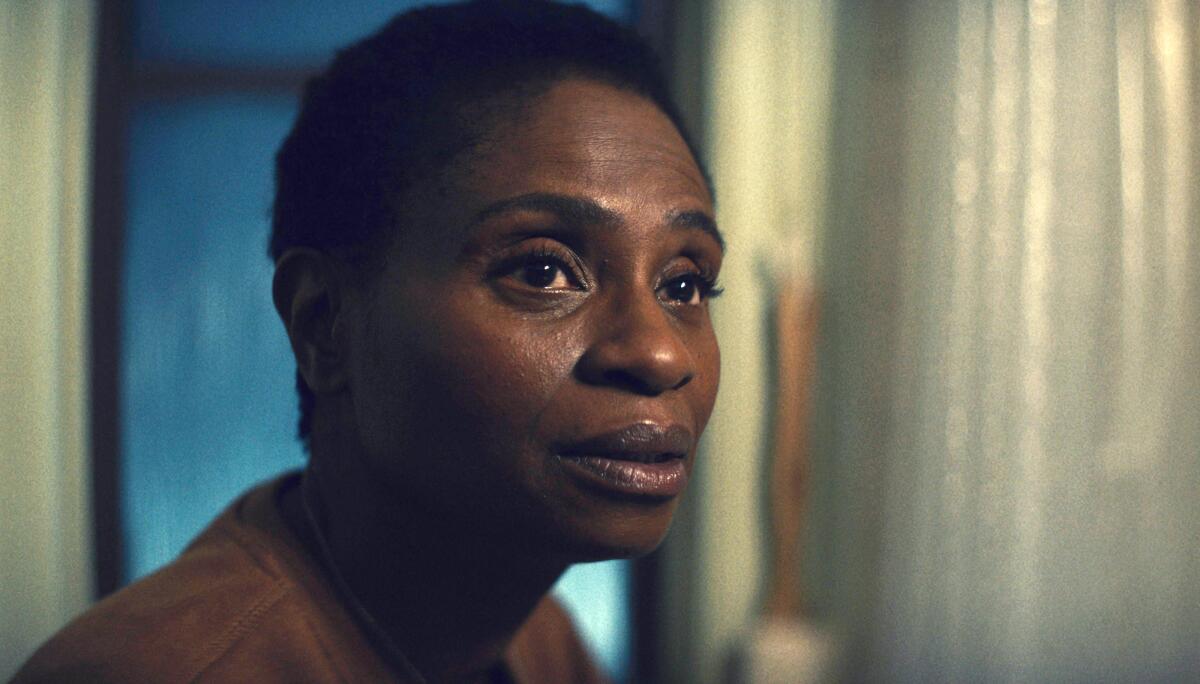
Emma brings back her magical bracelet from Brazil; Apollo’s mother, Lillian (Adina Porter), is from Uganda, and Christian: She advocates baptism for the baby, because “unless one is born of water and spirit he cannot be saved … from the dark creatures of the world.” There are also nods to vampire etiquette and to the story of “Rapunzel.” Norway is important — the series begins, “once upon a time,” with a brief prologue set in 1825, as a boatload of Norwegians sail in rough waters for America, “not just an improbable crossing, but an impossible one.” Just why we should start there is unclear — and you are likely to forget it as the story proper begins.
In what has become a sort of structural tic among streaming series, the penultimate episode takes a step backward (or in this case, sideways and backward). Without going into spoilery detail, taken on its own it’s an impressive piece of work, stylistically out of joint with the rest of the series, laden with theatrical effects in what is nearly a one-woman show for Porter as Lillian (seconded by Alexis Louder, who plays her younger). But though it offers a key revelation, it also somewhat beside the point, interrupting the narrative flow of an already long series, taking us on a long detour away from the characters in whose fate we are most invested.
For all its oddities of pacing, and the odd mechanical plot point or unlikely shotgun, there is something, or someone, worth watching at any given moment. Stanfield, the low-key anchor of “Atlanta,” is a soft-spoken protagonist who holds your attention and sympathy; Backo shines in various moods and modes, going off and on the rails. Valuable, too, are Malcolm Barrett as Apollo’s friend and partner Patrice; Samuel T. Herring (from the group Future Islands in his first acting role) as a strange person who insinuates himself into Apollo’s life; and, especially, Jane Kaczmarek as Cal, for Callisto — another name out of Greek mythology, note — a tough cookie whose role it would be a spoiler merely to describe.
As might be said of every other streaming series, “The Changeling” is longer than it needs to be, and there is so much to keep track of that certain things will have slipped your mind by the time the series circles back to them. And even when these eight episodes are done, there will be things left to explain and arcs cut off in midair, with fresh mysteries launched in its final moments. A second season is very much implied, though should one never arrive you might get away with regarding the mystifications as final and intentional, leaving you something to ponder as you lie abed in your normal human world.
More to Read
The complete guide to home viewing
Get Screen Gab for everything about the TV shows and streaming movies everyone’s talking about.
You may occasionally receive promotional content from the Los Angeles Times.
